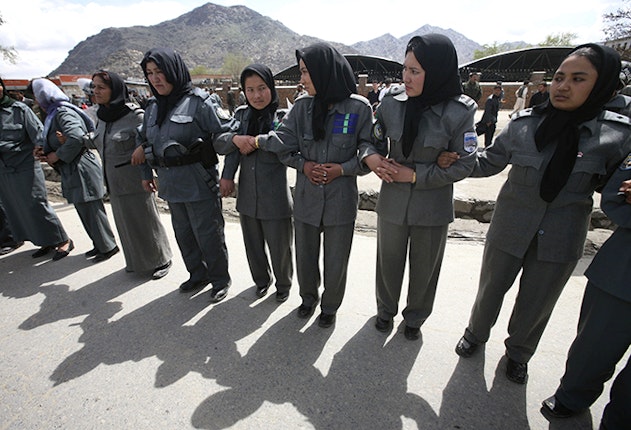Police Need a New Professionalism (Fortunately, It’s Already Hiding Inside Many Agencies)
By Chris Stone
In cities across the United States, violent crime rates are at record lows as are the numbers of civilians killed by police action. Yet police agencies are facing a spike in hostile protests over stop-and-frisk tactics and racial profiling. In South Africa, crime rates have been falling for years and the technical sophistication of the Police Service has never been higher, yet public respect for the police is in the toilet. In Turkey, police corruption, once flagrant, is now rare, and the use of physical force has virtually disappeared from interrogations; yet fear of the police is growing. In Rio de Janeiro, a widely praised police unit that occupies the slums once controlled by violent gangs has made many of them safer than they have been in a generation, but the results of a survey of officers working in those slums released this week reveals that the residents are growing increasingly hostile toward the police there. Why?
Why—when crime is falling, corruption receding, technical mastery growing, torture disappearing, and safety rising—are the residents of all these places distrustful of, or outright angry at, the police?
Police are still chasing a false image of their own professionalism, conceived a half century ago. The professionalism of the 1950s and 1960s, made popular in American television shows like Dragnet, Starsky and Hutch, and S.W.A.T. held out a promise that following the law, mastering sophisticated weaponry, and pledging loyalty to the organization would bring professional discipline and, with it, public respect. Wrong, wrong, wrong.
By the 1990s, political leaders and reform-minded police executives had recognized the problem. The so-called “professional model” of policing was distancing police from citizens and squelching their ingenuity. In the competition for the most rapid response, police departments lost sight of the right response to a call for help.
Community policing—collaborative partnerships between law enforcement and the individuals and groups they serve—became the new creed: professional policing out, community policing in. Bill Clinton built a big part of his 1992 presidential campaign around his pledge to add a hundred thousand community police officers nationwide, and the African National Congress enshrined community policing in the 1996 constitution of the new South Africa.
But community policing was no match for the allure of professionalism. Community policing became a specialized unit, a vague philosophy, and a funding stream from Washington or London, but most of what police agencies around the world did everyday still looked a lot like the old, professional model. The real investments were made in new computers, vehicles of every sort, weapons, and surveillance. Yes, police almost everywhere became more adept at following the law, and most made gestures toward community policing. These were meaningful—but not sufficient—achievements.
Only a new professionalism can replace the old professionalism. Community policing is an invaluable foundation for a new professionalism, but it is not—and never was—a complete package, able to guide detectives as well as patrol officers, and able to inspire police dealing with financial fraud, gun running, or political corruption.
What is that new professionalism? In an article last year Jeremy Travis and I suggested that police professionalism requires four commitments: to accountability, to legitimacy, to innovation, and to national and global coherence. Professional police are accountable for the cost of policing, the level of crime, and the conduct of the police themselves. Professional police attend not just to the legality of their actions, but to the public perception of those actions as legitimate. Professional police cultivate innovation and learning throughout their agencies. Professional policing is nurtured coherently in national, regional, and global networks. Building that new professional culture of policing will take time and effort, and it will also take money.
Last year, my predecessor at Open Society, Aryeh Neier, began an effort to create a new, global program on police reform to support more professional, rights-respecting policing. I encouraged that effort as a member of two Open Society advisory boards, and now we are bringing those plans to fruition. Of course, the Open Society Foundations will continue to support human rights advocates documenting misconduct and pressing for reform and our efforts to expand the information about crime and policing available from governments and in media of all kind will continue. But we will also increase support to NGOs, academics, and police organizations themselves willing to define a new professionalism in practice.
The answers are already in the police agencies. I’ve seen them in the genius of police officers I’ve worked with in Brazil, Jamaica, the Netherlands, Nigeria, South Africa, Turkey, and the United States. The answers are also in society, in organizations like Nigeria’s CLEEN Foundation and the Brazilian Forum for Public Security, whose conference I attended this week. Most promising of all, the answers lie in partnerships between police agencies aspiring to a new professionalism and the people they police.
There will always be a certain degree of force in policing. What matters is whether policing—when it asserts its authority—makes democratic progress possible or impedes it. Professional policing enhances democratic progress when it accounts for what it does, achieves public support, learns through innovation, and transcends parochialism.
Until December 2017, Chris Stone was president of the Open Society Foundations.




